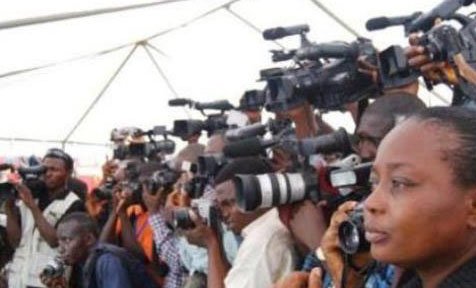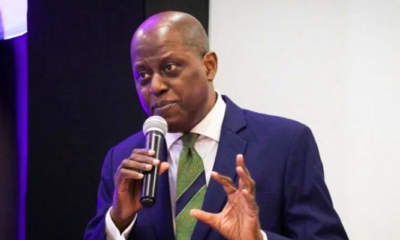News
Press Freedom: Editors, SERAP, Descend On Tinubu, Here’s Why

It is World Press Freedom Day today, but Nigerian editors and the Socio-Economic Rights and Accountability Project (SERAP) are angry with President Bola Tinubu.
SERAP and the edirots under the aegis of the Nigerian Guild of Editors descend on Tinubu over allegedly using repressive and anti-media laws to intimidate journalists.
This is coming against the background of the celebration today, of the World Press Freedom Day.
They cite such repressive and anti-media laws as the Cybercrimes Act and some codes of the National Broadcasting Commission (NBC), saying the government had been using these to target, intimidate and harass journalists, critics and media houses.
“The government of President Bola Tinubu, the country’s 36 governors and FCT minister must now genuinely uphold press freedom, ensure access to information to all Nigerians, obey court judgments, and respect the rule of law.”
READ ALSO: RSF Releases New Record Of Journalists Killed In Past 20 Years
“We would continue to speak truth to power and to hold authorities to account for their constitutional and international obligations including on freedom of expression and media freedom.”
“Nigeria as a country has a long and unpleasant history of press gagging and clampdown on media freedom, which is evidence of extensive state censorship of media and in some cases, the utter control of state-owned media houses.”
“This position has not changed considerably despite almost 25 years of unbroken democratic rule in the Fourth Republic.”
“We are concerned that press freedom remains under threat, especially due to economic challenges and other challenges such as navigating digital surveillance, hacking, online harassment and internet shutdowns.”
“Freedom of the press is one of the cornerstones of a democratic society. Journalism is not a crime; it is fundamental to a free society.”
“Freedom of the press is closely related to the freedom of expression, found in article section 39 of the Nigerian Constitution 1999 [as amended] and the provisions of international human rights treaties such as article 9 of the African Charter on Human and Peoples’ Rights and article 19 of the International Covenant on Civil and Political Rights to which Nigeria is a state party.”
READ ALSO: How The Eagle’s Correspondent Shone At One-Day Training For Journalists
The “state of press freedom in Nigeria” emanated from a commemoration today at the Radisson Blu Hotel in Ikeja, where they highlighted “serious concerns about the escalating crackdown on the right to freedom of expression and media freedom and the flagrant disregard for the rule of law by authorities at all levels of government.”
“The suppression of the press in recent times takes various forms ranging from extrajudicial to unlawful detentions, disappearances, malicious prosecutions and wrongful use of both legislation and law enforcement.
“Press freedom is essential for journalists and media organisations to report freely in the public interest. Press freedom also has wider significance, as a free and independent media contributes to transparency and accountability of government.”
“Press freedom is therefore essential not only for free speech as a public good but also for the enjoyment of other human rights.”
“It is important not only to journalists and media organisations, which publish the information but also to citizens, who have a right to access information from a diversity of sources.”
“This in turn is essential to ensuring the effective exercise of the right to participate in one’s government and the proper election of the people’s representatives.”
“Extensive research has been carried out on the existing legislation and the deliberate proposing of Bills aimed at silencing dissenting voices and muffling the press. In addition, there are a plethora of cases of threats, intimidation and actual aggression employing law enforcement, regulating bodies, and State might”, they stated.



























